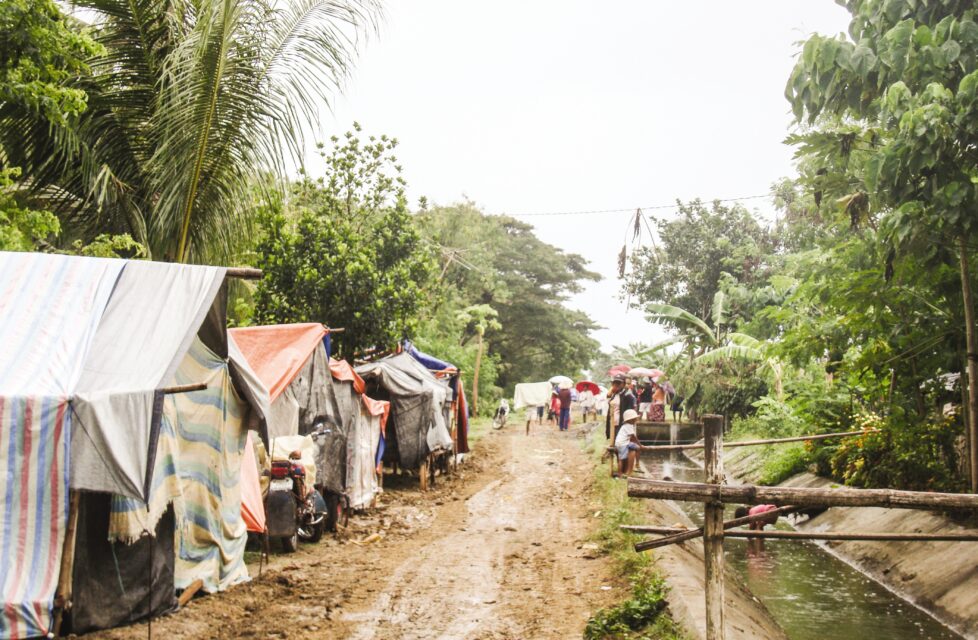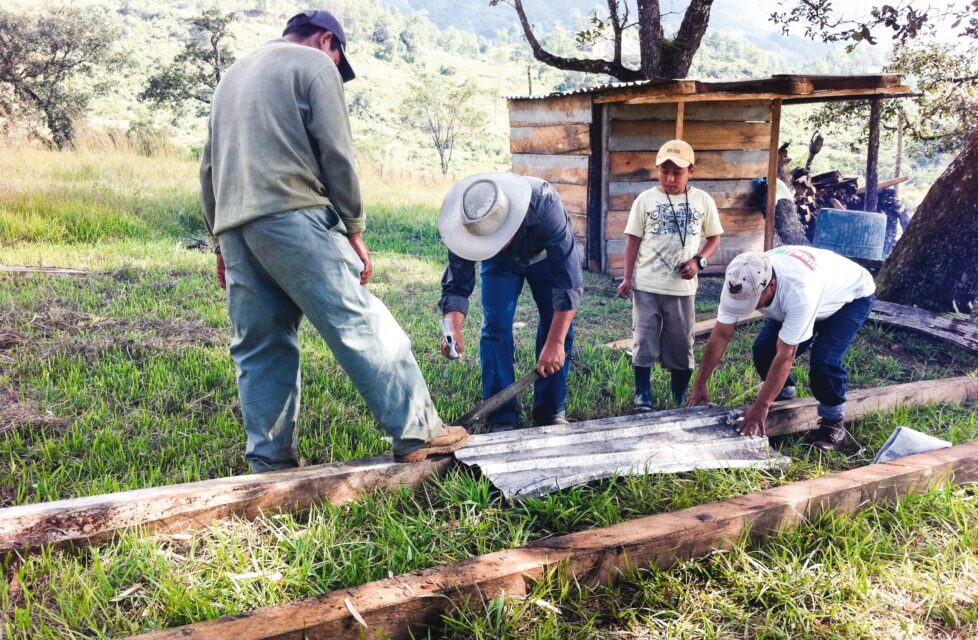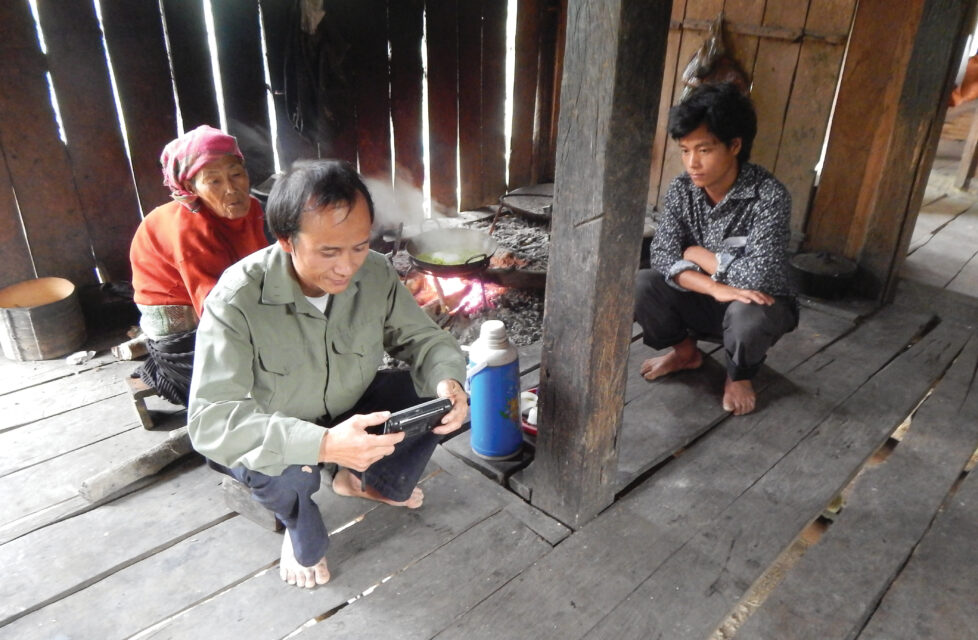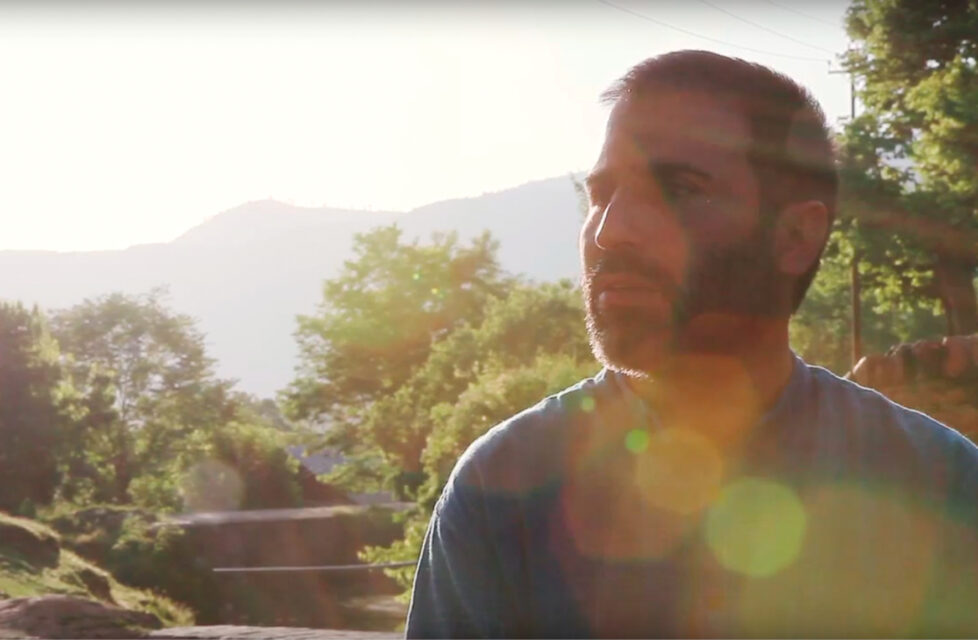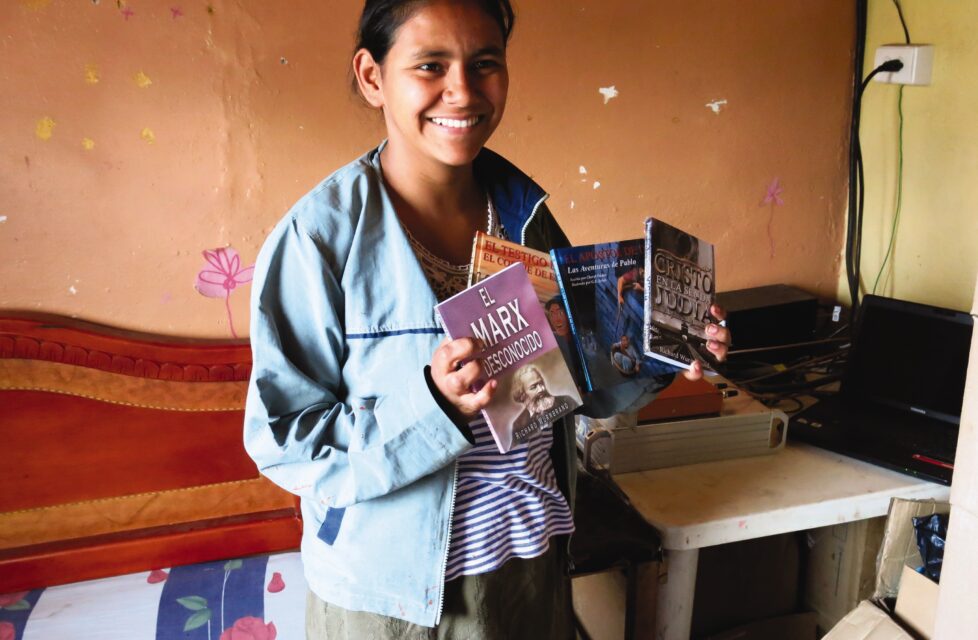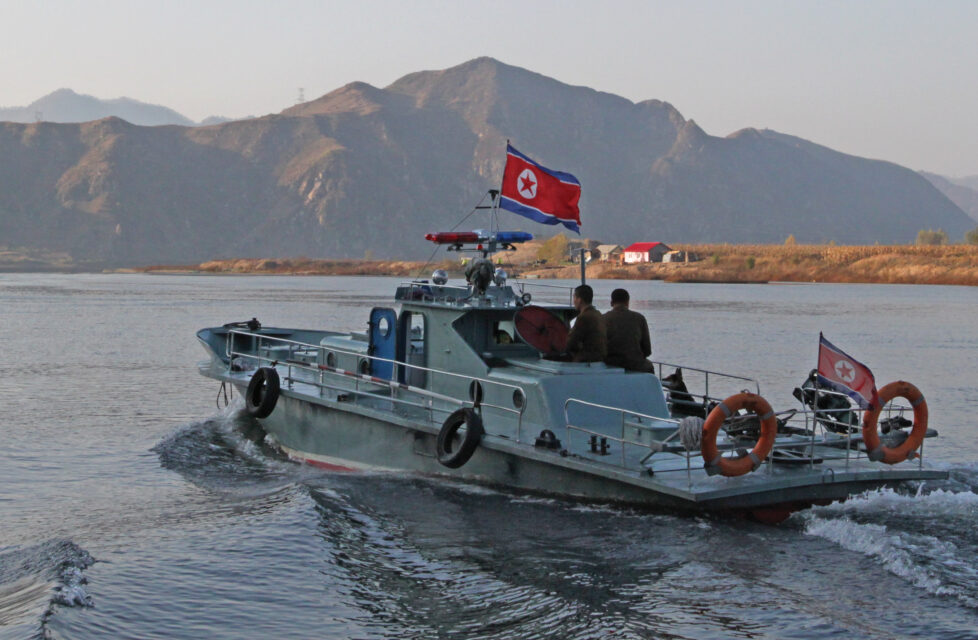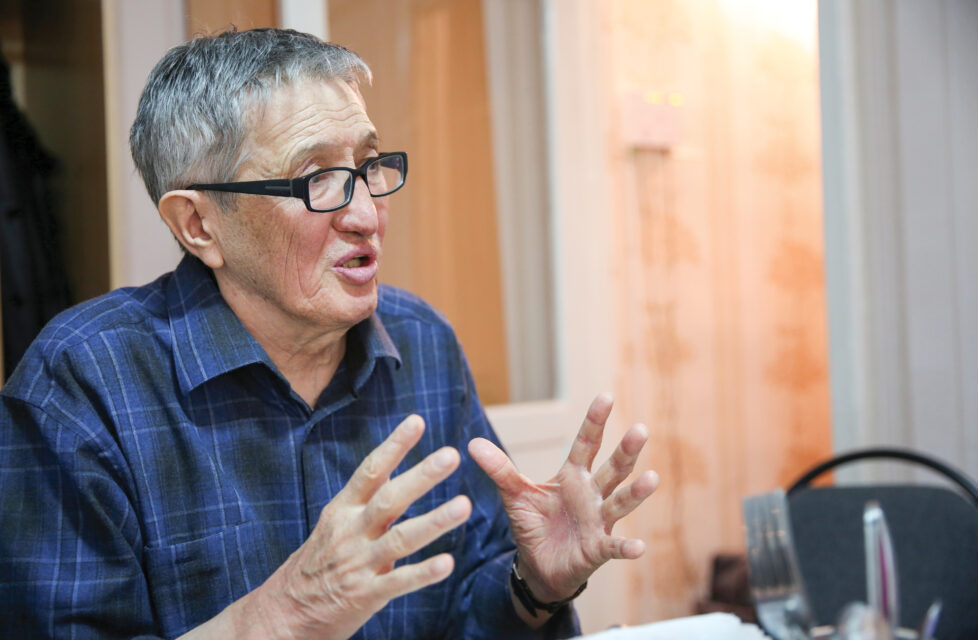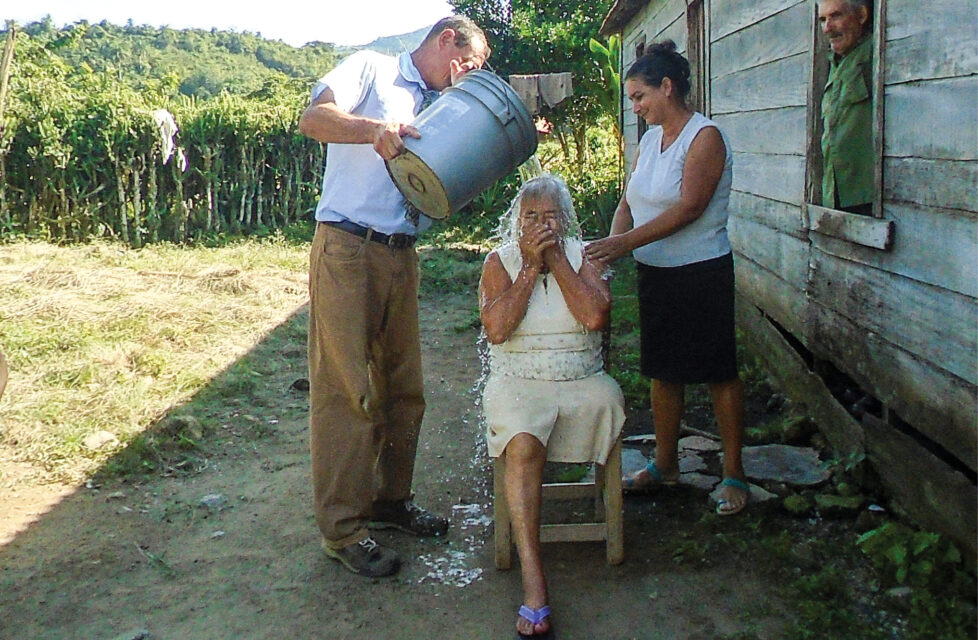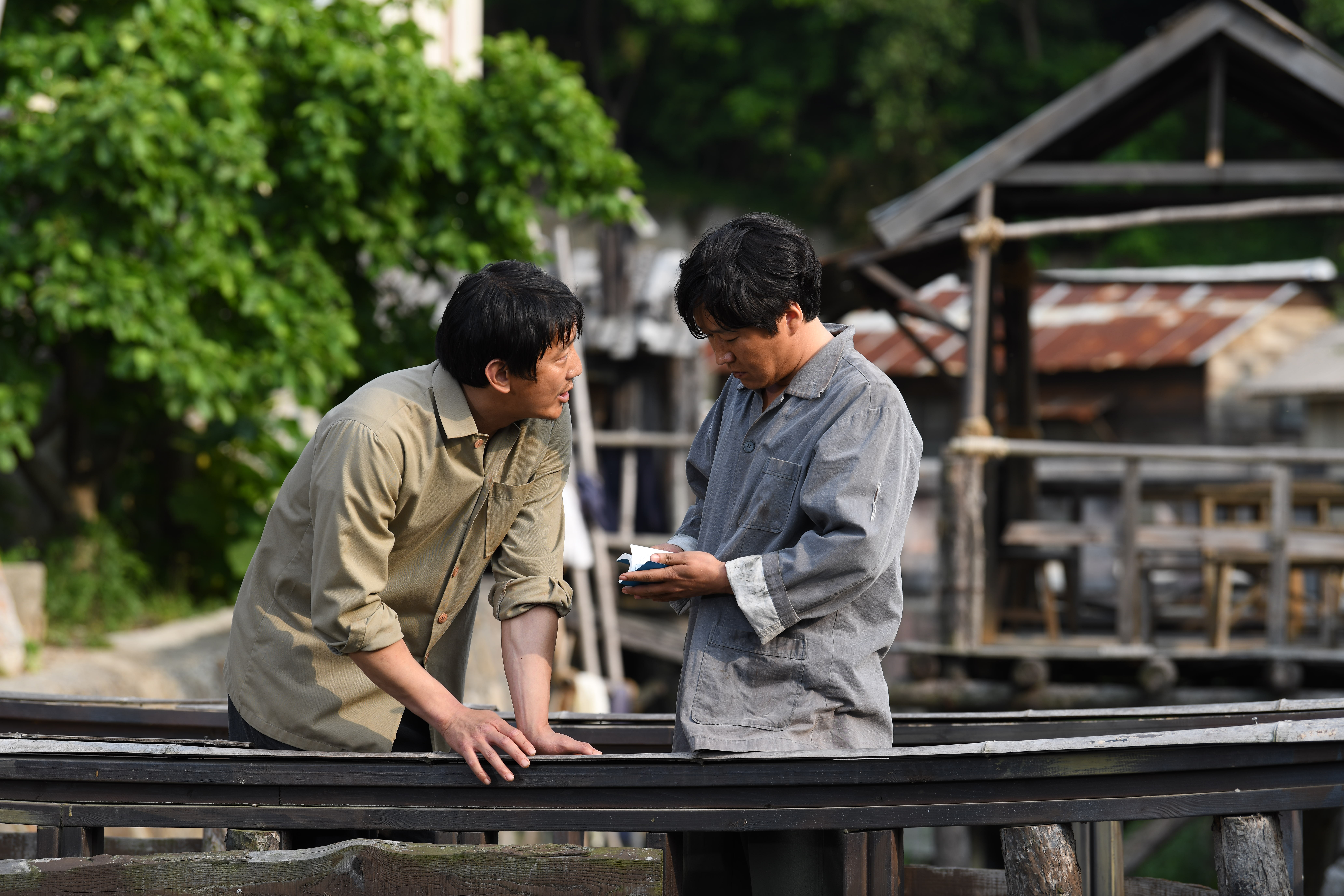At 10 p.m., Ruth awoke with a start to the sound of nearby bombing. She and her family lived in a small village in central Mindanao, Philippines, an area where Muslim insurgents had been fighting Philippine government forces for decades. But in the 18 years they had lived there, Ruth had never heard fighting so close to their home. She and her husband, Armando, had moved to the village in 1990 to start a church, which over the years had grown to 20 families. Their village of about 800 households was evenly split between Muslims and Christians, but the Muslim rebels hoped to establish Muslim domination in Mindanao and drive out all Christians. That night in 2008, Ruth was terrified by the sound of the nearby fighting. She, Armando and their three children ran behind their house, searching their property for a place to hide. Seeing nothing better than the small footbridge that crossed a murky canal behind their house, they quickly crawled under it. They knew there were snakes in the water, but they chose the danger of the snakes over that of the Muslim rebels they could hear advancing on the village. The couple tried to keep the
Read MoreFeliciano had been ordered to appear at a community assembly so the other leaders could interrogate him about the new ideas he had been teaching in Avellanal, Chiapas. “You have changed your thinking!” they told him accusingly. “You are talking like an evangelical.” At 52, Feliciano Ruiz Cruz was content with his life. He had a good wife and eight children. He and his three oldest sons, all married, farmed their land and provided for the entire family. Feliciano was one of four lay leaders in his local traditionalist Catholic church. He was also a member of the leftist Zapatista rebel group and a respected member of his community. All that changed one day in April 2013. While reading the Bible, he was convicted by the Holy Spirit that his worship of idols was sinful. He realized that the idolatrous worship of saints and gods in his traditionalist church was wrong, and he soon began teaching others what he had learned. Others in the community began to take note, and his three co-leaders at the church asked him to appear at the Avellanal community assembly to answer their questions. The region around Avellanal was so opposed to evangelicals that 10
Read MoreAt 9 a.m. the beatings started again. Police officers dragged the two bruised evangelists out of the police station and into the village square, where a large crowd had gathered for the privilege of beating these “propagators of lies and rebellion.” As more than 100 people stepped forward to strike the evangelists, the two men remained silent. “Dog men!” jeered the watching crowd. The beating lasted for three hours. Boldly Sharing the Faith Hy and Tan are from northern Vietnam. The two men became believers in 1996 after hearing VOM-sponsored Christian radio programing by the Far East Broadcasting Company (FEBC). The new Christians dedicated themselves to sharing the gospel with the tribal people in their area, most of whom have animist beliefs. This area is difficult for new believers and evangelists. Believers face imprisonment at the hands of communist government officials and harassment from village leaders. Despite the obstacles, Hy and Tan regularly shared their faith. Within just two years, everyone in their village had become Christians. The two evangelists led a regular church service and continued to minister in new areas. Beaten for Evangelism One day, while leaving a village where they had been working, Hy and Tan were
Read MoreFour masked gunmen charged into Mohammad Yousuf Bhat’s home on the evening of July 1, 2015, pushed his wife aside and demanded to talk to him. After he stepped forward, the gunmen escorted the 43-year-old father of three outside his home in the Kashmir Valley and shot him seven times, killing him. Those who worked with Yousuf describe him as being a fearless, bold and passionate believer who “would not be quiet about Christ.” In the end, his unflinching faith and evangelism of Kashmiri Muslims in North India led to his death. Since leaving Islam himself in 1999, Yousuf had known his life could end this way. SHARING HIS TESTIMONY While India is nearly 81 percent Hindu, the territory of Jammu and Kashmir is predominantly Muslim. In the Kashmir Valley, 97 percent of the nearly 7 million residents are Muslim. Islamic militants in the region have created a war zone in which both government soldiers and civilians are attacked by various radical groups. Villagers, especially Christians, have become anxious since Yousuf ’s murder. They are even afraid to speak of it. Before his death, Yousuf discussed the Islamists’ efforts to stop the spread of Christianity and the fear this caused
Read MoreElmer sat in a cave, listening to the howling wind and the hail pounding the rain-soaked earth. Surrounded by darkness and fearing for his life, the FARC guerrilla commander had much time to think and much to think about. He was being pursued by a FARC commander one rank below him as well as by government soldiers. The commander was jealous that Elmer had been promoted after government soldiers killed the previous top commander. And the government had placed a 200-million-peso (about $98,000 USD) bounty on his head that made him that much more of a target. Elmer saw only one solution. It was the solution that he had been taught in more than 30 years of indoctrination with Marxist teachings: “In situations like this, taking my life is my only way out,” he thought. He grabbed his gun and lifted it to his head. But when he tried to pull the trigger, he heard a voice saying, “Don’t do it.” He tried two more times, but each time he heard the voice, preventing him from pulling the trigger. The fourth time he tried, the hail and rain suddenly stopped. “Don’t do it,” the voice said again. “I love you.
Read MoreWhen Pastor Han answered a phone call one afternoon at his church in Changbai, China, near the North Korean border, his wife saw no particular reason for concern. She knew, however, that for several months both Chinese police and South Korean intelligence officers had been warning her husband that he was at the top of a North Korean “hit list.” Pastor Han, his wife and other Christian leaders had even agreed on security precautions designed to protect him while allowing him to continue his ministry to North Koreans. For example, he stopped driving on the border road, he didn’t leave his house or the church alone, and he kept a very strict schedule. But after receiving the phone call that afternoon at church, the pastor uncharacteristically disregarded those precautions and left the church alone. His body was found that evening in a rural area along the North Korean border. North Koreans on the Doorstep Pastor Han Chung-Ryeol and his wife arrived in the Chinese border town of Changbai in 1993. The 26-year-old recent seminary graduate had been called to Changbai to lead a small church of ethnic Korean Chinese, who make up about a quarter of the population in that
Read MorePrison pastor Imprisoned as a threat to the state, Pastor Kashkumbaev had every reason to feel discouraged. But a pointed question from a Christian brother changed his perspective, leading to a powerful work of God in a Kazakhstani prison. “You will serve 10 years of hard time,” the investigator said solemnly. The elderly pastor would be almost 80 by the time he completed his sentence, and part of it, he learned, would be spent in a psychiatric ward. Pastor Bakhytzhan Kashkumbaev knew that prisoners in the psychiatric ward were routinely drugged, causing them to lose the abilities to even think or move. They would drug him to a point of losing his mind. His heart sank. While he was not afraid to die, he didn’t want his seven grandchildren to see him in that condition. Death didn’t scare him, but losing his mind did. The “Crime” In May 2013, Pastor Kashkumbaev was arrested after being accused of harming the health of a church member at Grace Church, a legally registered church in Kazakhstan. Authorities filed five charges against the pastor, including a charge of inciting religious hatred. Although the church member defended the pastor, saying the charges were unfounded, these
Read MoreInfidel, Smuggler, Pastor How an encounter with the Bible transformed a militant Iraqi Kurd into a passionate evangelist. Seventeen-year-old Nemrut devoured books. He was always looking for something new to read, but few books in the Kurdish language were available in his dusty Iraqi town. One day he spotted something new in a local bookstore — a Kurdish translation of the Gospel of Luke. He wasn’t sure what it was, but he was intrigued. When he asked about the book, he was disappointed to learn that the bookstore owner wouldn’t part with it because it was his only copy. Determined to read the book, Nemrut made a deal with the owner to pay a lending fee so he could borrow the book and return it when he was done. He read until 4 a.m. the next morning. “This was the beginning of loving Jesus,” he said. Luke’s Gospel had planted a seed, but Nemrut still had much to learn. While he wasn’t particularly committed to Islam, Nemrut had been born into a Muslim family. Like many Kurds, he held that faith lightly, feeling more loyalty to family and tribe than to religion. Zealous for an independent Kurdish homeland, Nemrut joined
Read MoreCubans have borne the weight of communism for more than half a century. In the last years of Cuban leader Fidel Castro’s life, however, the country’s strict communistic and atheistic ideals appeared to be eroding. Then, in 2014, the waning spirit of the communist revolution was suddenly revived, and pressure on Christians rose sharply. Evangelical leaders were regularly interrogated by the Religious Affairs Committee and pressured to stop their Christian work. As the communist spirit continued to grow, Christians experienced a renewed passion to evangelize. Amid this environment, Christian leaders from various denominations jointly launched an evangelistic campaign in Havana called the “Power to Transform.” The campaign’s objective was simple: Church members would go to bars, cafes and parks and share Jesus. When Communist officials heard about the campaign, the church leaders from all denominations were summoned for interrogation. But since the campaign had no central leader and received no foreign support, Cuban authorities had no one to arrest and no way of stopping the campaign. So Christians throughout Havana continued to share their faith with confidence. When a church member was confronted by a man asking who had given him the authority to evangelize in a public park, the
Read MoreWhile growing up in North Korea, “Sang-chul” was taught that the concept of God was a dangerous lie. And the government’s zero-tolerance policy toward any suspicion of Christian behavior reinforced the lesson. As the gospel quietly spread in parts of the country, so did a fear among North Koreans that they might be suspected of Christian faith. “We were really afraid of Christianity because anybody could get executed or killed — even if you were looking at the Bible,” Sang-chul said. But in 2013, Sang-chul witnessed the power of a life devoted sacrificially to Jesus: The commitment of a pastor named Han Chung-Ryeol enabled Sang-chul to let go of his fear. Pastor Han was later martyred, on April 30, 2016, because of his bold Christian work. “I really wanted to know why he helped North Koreans, because it was dangerous for Pastor Han to help North Koreans there,” Sang-chul recalled. “Pastor Han unconditionally loved us and treated us well. I felt his heart. The more I met with Pastor Han, I felt more his heart came from the Lord. Without God, he wouldn’t have helped me. That is why I realized Christianity is a true religion.” Like many North Koreans,
Read More
